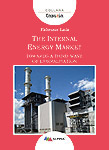Tutto ciò che riguarda l’energia sta divenendo di giorno in giorno più importante, non solamente per la politica, per le società e per le professioni, ma per qualunque cittadino, in qualunque momento della sua vita.Il buco dell’ozono e la desertificazione, i conflitti geopolitici e le lotte ambientalistiche, sono tutti strettamente legati al ruolo dell’energia, alle sue modalità di produzione e di commercializzazione.
Per questo, anche il diritto dell’energia sta divenendo di giorno in giorno più importante e più attuale:
- liberalizzazione dei mercati;
- energie rinnovabili;
- risparmio energetico;
- competizione fra i gasdotti;
- peso politico delle aziende energetiche;
- fusioni e concentrazioni.
Questo “blog”, destinato a fare parte di un ambiente Web 2.0 & Wireless, dedicato, in parte, al diritto della concorrenza, si occupa, essenzialmente, di diritto europeo della concorrenza e di norme di diritto regolatorio, europeo e nazionale.
Tuttavia, dati i legami strettissimi che il diritto dell’energia ha con altre branche del diritto, dell’economia e della politica, questo blog ospiterà anche informative di attualità politica, economica e sociale, notizie dalle imprese, informative tecniche sulle nuove tecnologie ambientali.






